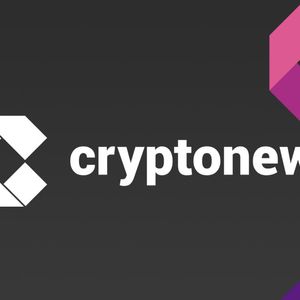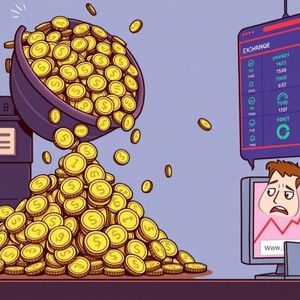BitcoinWorld Bitcoin Mining France: A Bold New Energy Strategy Emerges Imagine a world where excess energy, instead of being wasted, powers a digital revolution. This intriguing possibility is now taking shape in France, where the far-right Rassemblement National (RN) party is championing a groundbreaking bill. Their aim? To harness the vast, often untapped, surplus electricity generated by France’s robust nuclear reactors for the purpose of Bitcoin mining France . This move signals a significant shift in political perspectives on cryptocurrency, especially given the historical stance of figures like Marine Le Pen. What’s Driving France’s Bitcoin Mining Energy Proposal? The proposal from France’s RN party to utilize surplus nuclear energy for Bitcoin mining is more than just a technological curiosity; it’s a strategic pivot. Historically, many political figures, including Marine Le Pen herself, have viewed cryptocurrencies with skepticism, with Le Pen advocating for a ban on crypto in 2016. Her current support for crypto mining marks a remarkable reversal, reflecting a growing understanding of the economic and strategic potential of digital assets. The core idea revolves around France’s significant nuclear energy capacity. France is heavily reliant on nuclear power, which often produces more electricity than the national grid can consistently consume, especially during off-peak hours. This surplus energy is either curtailed or sold at very low prices, representing a missed opportunity. The RN’s bill seeks to transform this challenge into an advantage by directing this excess capacity towards energy-intensive operations like Bitcoin mining. This approach could provide a stable and predictable energy source for miners, while simultaneously monetizing an otherwise underutilized resource, strengthening the case for Bitcoin mining France . What Are the Potential Benefits of Bitcoin Mining in France? Embracing Bitcoin mining with surplus energy offers a multitude of benefits for France, extending beyond just digital currency. Here are some key advantages: Economic Monetization: By utilizing surplus nuclear energy for Bitcoin mining, France can transform what would otherwise be wasted or low-value electricity into a profitable venture. This creates a new revenue stream for energy producers and the state. Grid Stability and Efficiency: Bitcoin mining operations are flexible loads, meaning they can be ramped up or down quickly. This flexibility allows them to absorb excess power during periods of overproduction, helping to balance the national grid and prevent energy curtailment. This makes the energy infrastructure more efficient. Technological Leadership: Positioning France as a hub for sustainable Bitcoin mining can attract investment in high-tech infrastructure and foster innovation in energy management and blockchain technology. This contributes to France’s standing as a technologically advanced nation. Job Creation: The establishment and operation of large-scale mining facilities, along with related infrastructure, can create jobs in engineering, IT, maintenance, and security, providing economic stimulus. The strategic use of nuclear power for Bitcoin mining France could indeed become a model for other energy-rich nations. Potential Benefits Considerations Monetizes wasted energy Public perception of energy use Enhances grid stability Regulatory complexity Attracts tech investment Volatility of Bitcoin price Creates new jobs Need for specialized infrastructure What Challenges Could France’s Bitcoin Mining Plan Face? While the prospects for Bitcoin mining France powered by nuclear surplus are promising, the initiative is not without its hurdles. Navigating these challenges will be crucial for the success and public acceptance of the plan: Environmental Perception: Despite using surplus energy, Bitcoin mining still carries a public perception of being energy-intensive. Educating the public about the efficient use of otherwise wasted energy will be vital to counter potential backlash from environmental groups concerned about the carbon footprint of cryptocurrencies. Regulatory Framework: Establishing a clear, comprehensive, and adaptive regulatory framework will be essential. This includes licensing, taxation, and operational guidelines for mining facilities to ensure transparency and compliance. France will need to balance innovation with oversight. Market Volatility: The profitability of Bitcoin mining is directly tied to the volatile price of Bitcoin. Significant price drops could impact the economic viability of mining operations, potentially making the investment less attractive and affecting revenue streams for energy providers. Infrastructure Development: While France has abundant nuclear power, the specific infrastructure needed to connect large-scale mining operations to these surplus energy sources might require substantial initial investment and careful planning. How Does France’s Bitcoin Mining Initiative Compare Globally? France’s innovative approach to Bitcoin mining France using nuclear surplus is part of a broader global trend where countries are exploring unique energy sources for cryptocurrency mining. While the specifics vary, the underlying goal often remains the same: to leverage underutilized or renewable energy for economic gain and grid stability. For instance, in the United States, particularly in Texas, some Bitcoin mining operations are utilizing flared natural gas – gas that would otherwise be burned off as waste from oil wells. This turns an environmental problem into an economic opportunity. Similarly, Iceland has become a hub for crypto mining due to its abundant geothermal and hydroelectric power, offering cheap and renewable energy sources. El Salvador, under President Nayib Bukele, has even experimented with using geothermal energy from volcanoes to power Bitcoin mining, showcasing a highly unique and localized approach. What sets France’s proposal apart is its focus on nuclear energy, a highly reliable and consistent power source that generates significant baseload electricity. Unlike intermittent renewables like solar or wind, nuclear power provides a steady supply, making it an ideal candidate for continuous operations like Bitcoin mining. This positions France to become a leader in sustainable, large-scale mining, distinct from countries relying on more variable or fossil-fuel-dependent methods. The proposition for Bitcoin mining France marks a fascinating intersection of energy policy, economic strategy, and technological innovation. If successful, it could provide a blueprint for other developed nations with significant nuclear or industrial energy surpluses to monetize these resources and foster a new sector of their digital economy. The world watches to see if France can indeed turn its energy abundance into a significant advantage in the global crypto landscape. In conclusion, the Rassemblement National’s bill represents a bold and pragmatic shift in France’s approach to cryptocurrency. By aiming to harness surplus nuclear energy for Bitcoin mining, France is not only seeking to create new economic value but also to enhance its energy grid’s efficiency and potentially establish itself as a leader in sustainable crypto operations. While challenges remain, the potential benefits in terms of economic growth, grid stability, and technological advancement make this an initiative worth closely monitoring for the future of Bitcoin mining France and beyond. Frequently Asked Questions (FAQs) 1. What is France’s far-right party proposing regarding Bitcoin mining? France’s Rassemblement National (RN) party is preparing a bill to utilize surplus electricity generated by the country’s nuclear reactors specifically for Bitcoin mining. This aims to monetize otherwise wasted energy and enhance grid stability. 2. Why is Marine Le Pen’s stance on crypto mining significant? Marine Le Pen, leader of the RN, previously advocated for a ban on crypto in 2016. Her current support for crypto mining signifies a major reversal and a growing recognition of the economic and strategic potential of digital assets, reflecting a broader shift in political views towards cryptocurrencies. 3. How can surplus nuclear energy be used for Bitcoin mining? Nuclear power plants often produce more electricity than the grid can consume, especially during off-peak hours. This surplus energy, which might otherwise be curtailed or sold cheaply, can be directed to energy-intensive Bitcoin mining operations, providing a stable and profitable use for the excess power. 4. What are the main benefits of this proposal for France? The proposal offers several benefits, including monetizing wasted energy, enhancing national grid stability by acting as a flexible load, attracting investment in high-tech infrastructure, and creating new jobs. It positions France as a potential leader in sustainable Bitcoin mining France. 5. What challenges might this Bitcoin mining initiative encounter? Key challenges include overcoming public perception concerns about Bitcoin’s energy consumption, establishing a clear and adaptive regulatory framework, managing the economic risks associated with Bitcoin’s price volatility, and developing the necessary infrastructure to connect mining operations to energy sources. 6. Are other countries using similar strategies for Bitcoin mining? Yes, other countries are exploring unique energy sources for Bitcoin mining. Examples include Texas utilizing flared natural gas, Iceland leveraging geothermal and hydroelectric power, and El Salvador experimenting with volcanic geothermal energy. France’s focus on nuclear surplus, however, offers a unique and consistent energy solution. If you found this article insightful, consider sharing it with your network on social media. Your shares help us spread awareness about critical developments in the world of cryptocurrency and energy innovation! To learn more about the latest Bitcoin mining France trends, explore our article on key developments shaping Bitcoin’s institutional adoption. This post Bitcoin Mining France: A Bold New Energy Strategy Emerges first appeared on BitcoinWorld and is written by Editorial Team




![[LIVE] Crypto News Today: Latest Updates for August 04, 2025 –Bitcoin Holds $114.5K in Mild Crypto Recovery, PayFi Sector Up 8% [LIVE] Crypto News Today: Latest Updates for August 04, 2025 –Bitcoin Holds $114.5K in Mild Crypto Recovery, PayFi Sector Up 8%](https://resources.cryptocompare.com/news/52/49501869.jpeg)











